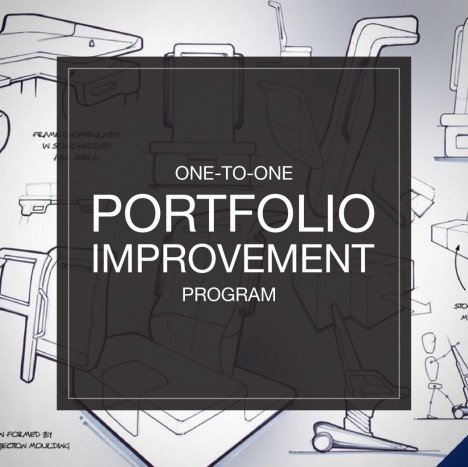
If we were talking about marketing a product we’d look to define our target audience, identify where they can be found in their highest concentration, understand where their attention is, build their trust and make them aware of the positive impact the product will have and WHY they should have it. There’s more to it, but you get the gist. As designers, you know this, but it can be easy to forget the basics when it comes to marketing YOURSELF and not a product. In this post, we take a look at how you can promote yourself more effectively with the goal of increasing the chances of landing the design job you want most.
‘REMARKABILITY’
Designers that are WORTH talking about, GET talked about, and that’s how it should be. So, being remarkable in the first place sits above everything else. It’s the number one pillar of successful marketing and must be your first step. All the effort promoting yourself to get the attention of the people you want to build relationships with is useless if you have nothing great to direct their attention to once you get it. If you don’t have a great portfolio in place to show once you capture the attention, then all you are doing is creating noise. It’s damaging to your reputation and you lose trust. You need that foundation first and foremost. For a start-up, it’s having a great product. For a design graduate, it’s having a great portfolio. (For tips on this, check out our post on portfolio improvement HERE). As Gary Vaynerchuk said, “If your product is shit, the greatest marketing in the world is just going to expose that”.
MAKE YOURSELF DISCOVERABLE
There are only really two scenarios you are trying to foster.
1) Someone who makes or impacts decisions regarding the hiring of new design talent sees you and your work. Let’s call them Robert.
2) Someone who Robert trusts tells him that he should see you and your work.
Hiring is all about people. Robert is your target audience, and you want as many Roberts as possible to see your work. If you create an outstanding portfolio as a PDF and submit it directly to job openings that you find online, it is possible you will land a job with only 5 people on the planet ever seeing your portfolio. However, it limits the number of people in your target audience that will see your work. In order to maximize your exposure, you need to make yourself discoverable.
A good start is to sign up to sites that can host your portfolio for free. There are several sites that have a huge base of portfolios including Coroflot, Behance, Arts Thread, Issuu, etc. On top of this, having an Instagram feed that documents the journey of your design work is incredibly worthwhile. There is a great Industrial Design community on Instagram, and by engaging in that community you can capture the attention of experienced designers in the industry – many of whom post when the design firm they work for are looking for new designers. Use hashtags like #idsketching and #industrialdesign to find relevant content and accounts to follow and get involved in things like Weekly Design Challenge and Sketchwars. Instagram marketing is a huge subject in its own right. My main point here is that there is a high concentration of designers who give a lot of their attention to that platform, so it’s a place you need to be engaging if you wish to market yourself effectively.
You should also have your own website with a blog and email list using MailChimp. This way, you have your own audience you can market yourself to forevermore. If you don’t use sign-up forms and capture details, your dream contact might stumble upon your site and never return. Building an email list allows you to keep them updated with your design work. Adding the contacts you develop a closer relationship with to your LinkedIn account is also a good way of achieving this.
ENTER COMPETITIONS REGULARLY
Another great aspect of signing up to sites like Coroflot and Arts Thread is that they host competitions for the benefit of students and recent graduates. For example, Arts Thread recently organized a competition with Levi Strauss & Co. All entries have been selected down to 20 finalists, and 2 individuals will be chosen to land a summer internship at Levi’s headquarters in San Francisco. For those two students, landing that placement further contributes to marketing themselves effectively. They will get to show their skills to experienced designers in a world class team, build their network, learn new skills and add this to their résumé. It all adds to increasing their chances of landing a job when they graduate, and it all started from being aware of the competition in the first place. So, get signed up to these sites and keep a finger on the pulse.
Entering competitions regularly not only puts you in the running for winning prizes (internships, awards, cash, etc) but you also build your project experience and accelerate your own learning. Sometimes the prize will be exhibiting your work to a large audience at a prestigious event. Again, it all contributes to marketing yourself even further. Who knows, Robert might be there.

Read our article on How Awards Help Your Design Career
REACH OUT FOR PORTFOLIO REVIEWS
Portfolio reviews are one of the most effective ways for young designers to market themselves and build deep relationships with key individuals simultaneously. Not everyone will say yes. People lead busy lives. However, if you ask 100 senior designers and design managers for 45 minutes of their time to jump on a video call and go through your folio – a few are going to say yes. Even better, target people you respect who live locally and meet them in person. Be honest, be sensitive to their time, but make it clear what you are looking for. Offer to buy them lunch or do something thoughtful to show you really care.
The reason portfolio reviews are so valuable is that it’s essentially an interview. If you can break through and get them then the Roberts of this world end up learning more about you and your work than the 200 candidates who actually applied for a job at that company and got nothing but a rejection email. If you can do this with multiple movers and shakers, and turn it into a long-term relationship – you’ve opened a door that can potentially help you later down the line. Just remember to do something thoughtful to say thank you and leave a lasting impression.
ATTEND INTERVIEWS, AND DON’T WRITE THEM OFF DUE TO YOUR OWN ASSUMPTIONS
I mentioned that portfolio reviews can have a similar effect to interviews in the way that you get to meet decision makers. They get to see your work, learn more about you and you grow your network. Well, these benefits only come with interviews if you attend them.
I meet many graduates who get asked to attend interviews and decline them because they end up building up their own assumptions of what the job and company are really like and convince themselves it’s not right for them. Although it might not be the perfect role for you, there is no harm in having a conversation to find out more. There is nothing to lose. The other thing to consider is that a Design Manager at one business who interviews you could well be working for a different business 6 months down the line that is your ideal company to work for. If you decline interviews, you miss the opportunity to build your network and make yourself known. Whether it is events, competitions, interviews or conferences – try to say ‘Yes’ more and you’ll build your network. You’ll increase the likelihood of serendipitous encounters. Remember the two scenarios from before that we are trying to foster? Well, you are much more likely to meet your target audience if you are engaging in the same activities as them, using the same platforms, attending the same events – in as many instances as possible. Use LinkedIn to identify the individuals you wish to meet the most, and introduce yourself. There is no downside. So, get out there, improve your portfolio, build your network, meet people, enter the competition, say YES, attend the event – and say “Hi” to Robert for me…
ABOUT THE AUTHOR
Nick Chubb is a Senior Industrial Designer at IDC in London, designing consumer products and medical devices for some of the world’s leading brands. He has a 1st Class Masters Degree in Product Design and assesses hundreds of design portfolios each year. He acts as lead portfolio advisor at Arts Thread, and is often invited to give talks at leading Universities on the subject of design. Learn more at nickchubbdesign.com
ONE-TO-ONE PORTFOLIO IMPROVEMENT PROGRAM
If you wish to take your design portfolio to the next level and land more interviews at the companies you love most, check out Nick’s One-to-One Portfolio Improvement Program. Learn more at nickchubbdesign.com/portfolio-improvement-program
![]()













